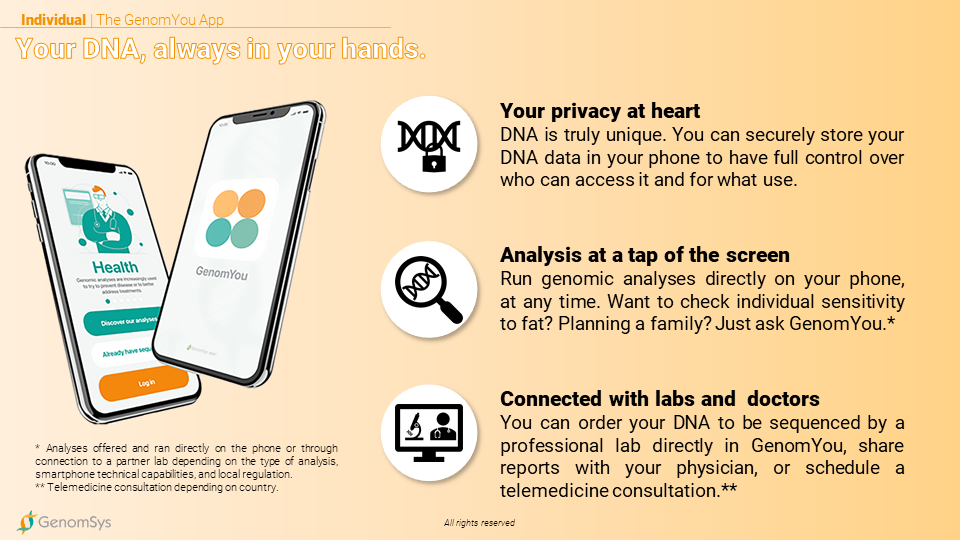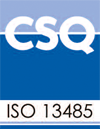Today, we want to detail the support through mHealth, and what mHealth’s benefits are for healthcare systems—following our last week’s description of mHealth and how initiatives for implementing mHealth into healthcare are handled in Switzerland, Germany, Spain, and Italy.
The article from last week you can find here: mHealth – Healthcare in a mobile world I
How can mHealth support overall healthcare today?
Despite the large potential, it is evident that mHealth is not very suitable, for example, in emergency surgery or any other emergency treatments in healthcare. Still, its mobile nature can be used in a wide range of processes in our healthcare system today.
Support in the administrative healthcare process
While we scheduled our doctor appointments by calling their offices in the past, now we have – through our smartphones – the possibility to book these appointments online, receive automatic reminders, and can even do the consultation digitally through a video conference. Especially convenient if the specialist lives far away and the commute is completely eliminated, saving time and costs.[1]
Also, mHealth application can help patients with their own administration of their health records. Using their smartphones, patients are able to view or share – when needed – their medical data at any time and any place. This might become necessary for first aid responders to check the blood type or select medicine for a specific treatment.
Raising awareness
An essential factor in healthcare, besides the actual therapies and treatments, is raising awareness amongst the public on diseases and how to prevent them. As medical progress has provided us daily with new knowledge for decades now, the complexity is also increasing. This complexity poses significant challenges for a non-expert.
mHealth initiatives aim to solve these challenges by providing conveniently and directly information to the individual – through their smartphone. An example is the “Raising health awareness in Bangladesh via SMS campaigns”.[2]
The Ministry of Health and Family Welfare of Bangladesh has taken advantage of the rapidly increasing number of mobile telephone subscribers in their country and started a project to raise awareness of its health campaigns by broadcasting SMS text messages to all mobile telephone numbers in the country. The messages range from encouraging parents to bring their children to get vaccinated to other large-scale nationwide health campaigns, such as its Vitamin A Week, National Breastfeeding Week, and National Safe Motherhood Day.[2]
Monitoring & Surveillance
The monitoring of patients using mobile devices such as smartphones or paired smartwatches can help significantly during the treatment of a patient’s illness from a distance (e.g. diabetes and cardiac patients). Remote sensors linked to mobile phones are often used to facilitate the data transmission to the health service provider. This can reduce the need for visits to a health center for check-ups.[2]
What are the benefits of mHealth?
Faster and “unlimited” access to healthcare
A key benefit of mHealth applications is that they provide patients with faster and more convenient access to health providers and care. This includes the rapid transmission of secure messages, scheduling appointments, and a platform to connect with providers at any place and time. Telemedicine is, in fact, one of the most predestined ways for any mHealth application and has proven itself as a beneficial technology during the past 2-years COVID19 pandemic.[3]
Remote monitoring
mHealth applications that can track specific biometric data like blood pressure, heart rate, or glucose levels have provided a significant evolutionary step in healthcare over the past couple of years. This remote monitoring technology – through smartphones or smartwatches – allow an automatic collection of health data and transmission to treating physicians to gain more profound and more precise insights into the physic of patients.
These data can now greatly support selecting appropriate treatment and adjusting therapy. Most of the time, it is applied in the treatment of chronic conditions. In 2019 the Center for Medicare and Medicaid Services (CMS) issued new codes and covered services for physicians and healthcare organizations to get reimbursed for offering such services.[1]
Increased connectivity, better communication
The internet helped to increase the interconnectivity of our planet, but it was through the smartphone that we are now fully connected at any place – as long there is reception – at any time. mHealth applications aim to improve the ability to connect conveniently and securely across our healthcare system, whether it is connecting the patient to their physician, quick and easy communication amongst office staff, referring physicians, or mobile health record access.
The smartphone and the installed mHealth application can be used as a digital folder for all necessary medical records. This allows a better insight for healthcare professionals to see the full picture – where the patient has been treated previously, who has treated him/her, for what disease, and what – improving the coordination in the care process.[1]
What does GenomSys provide in terms of mHealth?
At GenomSys, we address these developments head-on. We rightfully want to establish actual personalized medicine through mHealth in genomics. Our solutions reflect the need for high-level data privacy, convenience, and high interoperability. All this is combined in our standard for genomic data (MPEG-G), which is at the core of all our solutions within the GenomSys EcoSystem.
Our GenomYou app is designed to bring the benefits of current mHealth applications to the genomic field. We want to bridge the need for a high level of data privacy – what is more private than our genetic information? – and convenience from our handheld devices. GenomYou allows ordering a DNA sequencing, storing your genomic data only on your phone and nowhere else, running analysis and receiving the results directly in your phone and getting in contact with genomic experts or your physician for further actions.

We believe that healthcare in the future will be an ecosystem consisting of state-of-the-art tools for professionals and convenient, highly secure applications for citizens to take action when it comes to their health easily.
By Lucas Laner on February 17, 2022.
References:
[1]Jasmin Collier; mHealth: What is it, and how can it help us? (2018); https://www.medicalnewstoday.com/articles/322865
[2] World Health Organization (WHO); mHealth: New horizons for health through mobile technologies: second global survey on eHealth (2011); https://www.who.int/goe/publications/goe_mhealth_web.pdf
[3] S. Michael Ross; What Are the Benefits of Mobile Health Technology? (2019); https://blog.cureatr.com/benefits-of-mobile-health-technology
Picture: Freepik




